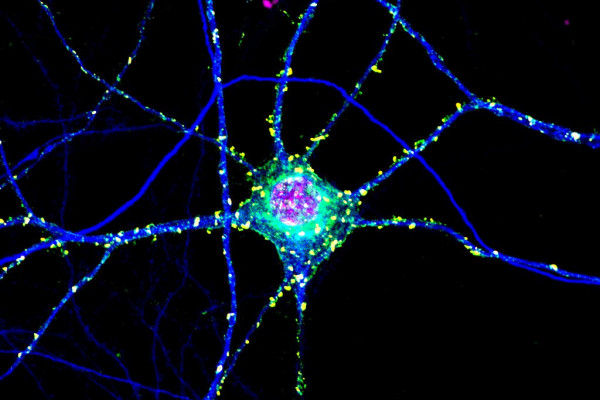Researchers have used stem cells to make neural implants more refined and with less scar...
Interviews with Scientists
Interviews about medicine, science, technology and engineering with scientists and researchers internationally...
Robin Lovell-Badge is from the National Institute for Medical Research and he’s been researching public opinion of...
Also in the news this week, EPSRC funded researchers up in Glasgow have been investigating how we respond emotionally...
Increasingly, governments and energy companies are looking at ways of harvesting wave and tidal energy. But what about...
Boris Worm from Dalhousie University in Canada picks our Critter of the Month.
Around the globe, sharks are hunted unsustainably for their fins to make into soup. Mahmood Shivji tells us about how...
We join the Great Egg Case Hunt on the Norfolk Coast with Sonia Revelley from Natural England, to help track down the...
Chris touches down in Australia and steps inside a planetarium for the very first time. He talks to Carley Tillet of...
The man who won the Nobel Prize for discovering the bacterium that is responsible for stomach ulcers actually munched...
Embarrassingly for the average Aussie, as a nation, they're amongst the worst emitters of greenhouse gases on a...
Many of Australia's unique and endangered species are under threat, largely owing to feral animals like cats and...
The Square Kilometre Array will be the largest radio telescope device ever constructed - a strong contender for the...
What have bees and gladiators got in common? Well, Boris Baer has been looking at their breeding habits and it turns...
Burling (known as "chumming" outside Australia) is the act of allowing the scent of bait into the water to...
They're the biggest fish in the oceans, but how to keep track of the beautiful, illusive whale sharks? With some...
Human waste from 79AD in Pompeii is being analysed by Andrew Fairbairn and colleagues to see what it can tell us about...
What did the Romans eat? Mary White discusses how Roman feasts probably weren't the extravagant occasions imagined...
Iceland was colonised by Vikings as a pristine environment, meaning it is now a rich source of archaeological finds...
Douglas Adams found a very good way to describe how big space is. He said: “Space is big. You won't believe how...
Sediba - a newly discovered, 2 million year old possible ancestor, had a small brain, but probably walked a bit more...
The UK Space Agency has recently announced a pilot program, inviting companies and academics to device innovative ideas...
